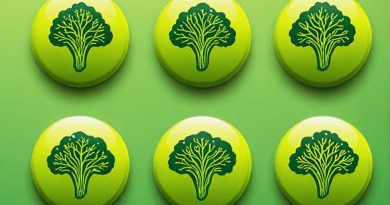The human digestive system is a complex network of organs that work together to process food, absorb nutrients, and eliminate waste. One of the most important organs in this system is the large intestine, also known as the colon. Although it does not play a primary role in digestion, the large intestine is crucial for water absorption, waste formation, and gut health. Understanding the function of the large intestine helps us appreciate its role in maintaining overall health and preventing digestive disorders.
1. What is the Large Intestine?
The large intestine is the final section of the digestive tract. It is approximately 1.5 meters (5 feet) long and wider in diameter than the small intestine. The large intestine is divided into several parts, each with a specific function:
- Cecum – The first part that connects to the small intestine.
- Colon – The longest section, divided into ascending, transverse, descending, and sigmoid colon.
- Rectum – The last part that stores waste before elimination.
- Anus – The opening through which waste exits the body.
While the small intestine absorbs most nutrients, the large intestine focuses on processing waste, absorbing water, and maintaining gut bacteria.
2. The Main Functions of the Large Intestine
The large intestine performs several vital functions that help maintain the body’s balance and health.
2.1 Absorption of Water and Electrolytes
One of the primary functions of the large intestine is to absorb water from the remaining undigested food. This process prevents dehydration and ensures that the body maintains the right balance of fluids.
- Around 1.5 liters of water enter the large intestine daily.
- The colon absorbs most of this water, leaving behind solid waste.
- Electrolytes like sodium and potassium are also absorbed, helping with muscle function and nerve signaling.
Without proper water absorption, a person may experience diarrhea (too little absorption) or constipation (too much absorption).
2.2 Formation and Storage of Feces
After absorbing water, the remaining material solidifies into feces. This waste consists of:
- Undigested food ptopics (like fiber).
- Dead cells from the digestive tract.
- Bacteria and waste products from digestion.
The rectum stores feces until the body is ready to eliminate them through the anus. This process is regulated by the nervous system and ensures that waste is expelled efficiently.
2.3 Gut Microbiota and Fermentation
The large intestine is home to trillions of bacteria, collectively known as the gut microbiota. These bacteria play a crucial role in:
- Breaking down undigested carbohydrates through fermentation.
- Producing important nutrients like vitamin K and certain B vitamins.
- Protecting the body from harmful pathogens.
A healthy gut microbiome is essential for digestion, immune function, and even mental health. Foods rich in fiber, probiotics, and prebiotics help support a balanced gut bacteria population.
2.4 Production of Mucus for Smooth Digestion
The inner lining of the large intestine produces mucus, which:
- Lubricates waste, making it easier to pass through the rectum.
- Protects the intestinal walls from damage and irritation.
This function ensures that bowel movements remain smooth and comfortable.
2.5 Gas Production and Elimination
During the fermentation process, bacteria in the colon produce gases like:
- Carbon dioxide (CO₂)
- Methane (CH₄)
- Hydrogen (H₂)
These gases are released as flatulence, which is a natural part of digestion. However, excessive gas may indicate poor digestion, food intolerances, or an imbalance in gut bacteria.
3. How the Large Intestine Maintains Overall Health
Beyond digestion, the large intestine plays a crucial role in maintaining overall well-being.
3.1 Preventing Dehydration
By absorbing water, the large intestine helps prevent fluid loss and maintains hydration levels in the body.
3.2 Supporting the Immune System
The gut microbiota found in the large intestine:
- Prevents harmful bacteria from overgrowing.
- Supports immune system function by producing protective compounds.
- Reduces inflammation, lowering the risk of digestive diseases.
3.3 Regulating Bowel Movements
A well-functioning large intestine ensures regular, healthy bowel movements. Issues like constipation or diarrhea often indicate imbalances in the colon’s function.
4. Common Disorders of the Large Intestine
When the large intestine does not function properly, it can lead to various digestive disorders.
4.1 Constipation
Occurs when the colon absorbs too much water, making stool hard and difficult to pass. Causes include:
- Low fiber intake.
- Dehydration.
- Lack of physical activity.
4.2 Diarrhea
Happens when the colon does not absorb enough water, leading to loose, watery stools. Common causes are:
- Infections.
- Food intolerances.
- Digestive disorders like irritable bowel syndrome (IBS).
4.3 Irritable Bowel Syndrome (IBS)
A chronic condition that causes abdominal pain, bloating, and irregular bowel movements. It can be triggered by:
- Stress.
- Certain foods.
- Imbalances in gut bacteria.
4.4 Colorectal Cancer
A serious condition where abnormal cell growth occurs in the colon or rectum. Risk factors include:
- Poor diet.
- Family history.
- Lack of physical activity.
Regular screenings, a healthy diet, and an active lifestyle can help reduce the risk of colon cancer.
5. How to Keep Your Large Intestine Healthy
Maintaining a healthy large intestine is essential for good digestion and overall health. Here are some tips:
5.1 Eat a High-Fiber Diet
Fiber helps regulate bowel movements and supports gut health. Good sources include:
- Fruits (apples, pears, bananas).
- Vegetables (broccoli, carrots, spinach).
- Whole grains (oats, brown rice, whole wheat).
5.2 Stay Hydrated
Drinking plenty of water prevents constipation and keeps the colon functioning properly.
5.3 Exercise Regularly
Physical activity helps stimulate bowel movements and improves digestion.
5.4 Consume Probiotics and Prebiotics
Probiotics (found in yogurt, kefir, and fermented foods) introduce good bacteria into the gut, while prebiotics (found in bananas, onions, and garlic) feed those bacteria.
5.5 Limit Processed Foods and Sugar
Highly processed foods can disrupt gut bacteria and lead to digestive issues. A balanced diet with natural, whole foods supports a healthy colon.
The large intestine is an essential part of the digestive system, responsible for absorbing water, forming waste, and maintaining gut health. It plays a crucial role in hydration, immune function, and digestion. Keeping the large intestine healthy through a fiber-rich diet, proper hydration, and regular exercise helps prevent digestive problems and supports overall well-being. By understanding its function, we can take better care of our digestive health and lead a healthier life.






